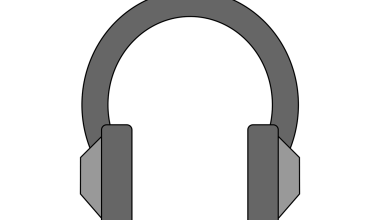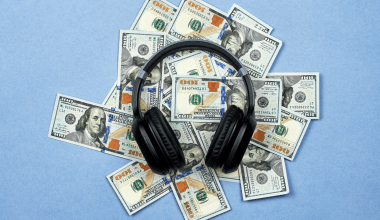The music industry, often seen as glamorous, has a dark side that many do not see. Beneath the surface of the glittering lights lies a harsh reality. Unfortunately, abusers in the music industry exploit their power and position, causing deep harm to others. It’s crucial to shed light on this problem and work toward creating a safer environment.
Understanding Abuse in the Music Industry
Abusers in the music industry come in various forms. They can be managers, producers, record label executives, or even fellow artists. These individuals often use their influence to exploit vulnerable people. Abuse in the industry can take many forms, and it’s important to recognize them.
1. Sexual Harassment and Assault
Sexual harassment and assault are serious problems in the music industry. Abusers in the music industry often pressure or force others into unwanted sexual situations. Many victims stay silent out of fear of losing opportunities. This silence allows abuse to continue unchecked, creating a toxic environment.
2. Emotional and Psychological Abuse
Emotional and psychological abuse is another tactic used by abusers in the music industry. This form of abuse involves manipulation and control. For example, abusers may belittle or demean their victims, damaging their self-esteem. Over time, this abuse can lead to serious mental health issues like anxiety and depression.
3. Financial Exploitation
Financial exploitation is also common in the music industry. Abusers in the music industry may manipulate contracts or withhold earnings. They often target young or inexperienced artists who may not fully understand their contracts. As a result, these artists can find themselves struggling financially, despite their success.
4. Bullying and Intimidation
Bullying and intimidation are other tools used by abusers in the music industry. Abusers may use threats or coercion to maintain control. This creates a hostile work environment where creativity is stifled. Over time, this can prevent artists from reaching their full potential.
The Impact of Abuse on Artists
The effects of abuse in the music industry are far-reaching. For many artists, the impact extends beyond their careers, affecting their mental, emotional, and physical health. Understanding these impacts is crucial in providing support to victims.
1. Mental Health Issues
Abuse often leads to mental health problems. Victims of abusers in the music industry may suffer from anxiety, depression, or PTSD. The stress and fear associated with abuse can take a significant toll on mental well-being. The pressure to maintain a successful public image can make it even harder for victims to seek help.
2. Career Setbacks
Abuse can also lead to significant career setbacks. Many victims lose confidence in their abilities, making it hard to continue their careers. Some may even leave the industry entirely due to the trauma they have experienced. This not only affects the individual artist but also deprives the industry of their talent.
3. Physical Health Problems
The stress from abuse can cause physical health problems too. Victims may suffer from chronic pain, fatigue, and other stress-related conditions. In some cases, these physical issues can impact the artist’s ability to perform or work.
4. Isolation and Stigma
Isolation and stigma are common experiences for victims. Many fear being judged or ostracized if they speak out. This fear can prevent them from seeking help. The isolation is often compounded by the stigma associated with being a victim, especially in an industry where reputation is key.
High-Profile Cases of Abuse in the Music Industry
Several high-profile cases have recently brought attention to abusers in the music industry. These cases highlight the widespread nature of the problem and the urgent need for change.
1. R. Kelly
R. Kelly’s case is one of the most well-known examples. He was accused of sexually abusing minors and manipulating young women. Despite numerous allegations, it took years for legal action to be taken. This case exposed the failures in the industry and legal system to protect victims.
2. Dr. Luke and Kesha
The legal battle between Kesha and her producer, Dr. Luke, drew significant attention. Kesha accused Dr. Luke of sexual assault and emotional abuse. The case highlighted the power imbalance in the industry and the challenges victims face when trying to hold their abusers accountable.
3. Harvey Weinstein’s Influence in Music
Harvey Weinstein, though primarily known for his work in film, also had influence in the music industry. His case became a catalyst for the #MeToo movement, which inspired many in music to come forward with their stories. This highlighted the need for accountability across all entertainment sectors.
4. Chris Brown and Rihanna
The domestic violence case between Chris Brown and Rihanna brought the issue of abuse into the spotlight. It sparked a broader conversation about domestic violence and the need for support systems for victims. The public reaction showed the complexities of addressing abuse when the perpetrator is a popular public figure.
Legal and Industry Responses to Abuse
As awareness of abusers in the music industry has grown, so have the efforts to address the issue. Both legal and industry changes have been made to protect artists and hold abusers accountable.
1. Strengthened Legal Protections
In response to the growing awareness, many places have strengthened their laws. These new laws make it easier for victims to seek justice and hold their abusers accountable. For instance, some regions have extended the time limits for reporting sexual assault, giving victims more time to come forward.
2. Industry Codes of Conduct
Many music industry organizations have introduced codes of conduct. These codes outline acceptable behavior and provide guidelines for reporting abuse. They aim to create a safer environment by setting clear standards and holding violators accountable.
3. Support Services for Victims
Support services for victims have become more widely available. These services include hotlines, counseling, and legal help. Organizations like MusiCares and RAINN offer specialized support for those in the music industry, helping them find the resources they need to heal.
4. Public Awareness Campaigns
Public awareness campaigns have been key in exposing abusers in the music industry. Movements like #MeToo and Time’s Up have encouraged victims to share their stories. These campaigns have also pressured the industry to make meaningful changes, showing that abuse in any form is unacceptable.
The Role of Media and Public Pressure
The media has played a significant role in exposing abusers in the music industry. Investigative journalism, documentaries, and social media have all been important tools in this fight. However, with this power comes responsibility.
1. Investigative Journalism
Investigative journalism has been essential in bringing abuse to light. Journalists have uncovered stories that might have otherwise remained hidden. This work has sparked important conversations and led to real change in the industry.
2. Documentaries and Exposés
Documentaries have also been powerful in raising awareness. For example, “Surviving R. Kelly” provided a platform for survivors to share their stories. These films not only inform the public but also put pressure on the industry to act.
Social media has changed how abuse is reported and discussed. Platforms like Twitter and Instagram allow survivors to share their stories directly with the public. Hashtags like #MeToo have united survivors and created a sense of community. However, it’s important to ensure that these platforms are used responsibly.
4. Public Pressure Leading to Industry Changes
The combined efforts of the media and public pressure have led to significant changes in the industry. Some companies have implemented new policies to prevent abuse. Others have taken a zero-tolerance approach, removing abusers from positions of power. This shift is a positive step toward a safer and more accountable industry.
What Can Be Done to Combat Abuse?
While progress has been made, there is still much work to be done to combat abusers in the music industry. Here are some actions that can help.
1. Education and Training
Education is key to preventing abuse. Industry professionals should undergo regular training on recognizing and preventing abuse. This training should cover topics like power dynamics, consent, and the legal obligations related to harassment.
2. Transparent Reporting Mechanisms
There must be clear and accessible ways to report abuse. Reporting mechanisms should allow victims to come forward confidentially. It’s also important that reports are taken seriously and acted upon quickly.
3. Empowering Artists
Artists should be empowered with knowledge about their rights. This includes legal advice, mental health support, and financial literacy. When artists understand their contracts and their rights, they are less vulnerable to exploitation.
4. Holding Abusers Accountable
It’s crucial to hold abusers accountable, regardless of their status. This includes legal action, industry sanctions, and public condemnation. Consistent accountability is key to preventing future abuse.
5. Creating Safe Spaces
The industry should create safe spaces where artists feel supported. This includes establishing policies on behavior and conduct, and providing mental health services. It’s important to foster a culture of respect and inclusion.
Moving Forward: A Call to Action
The issue of abusers in the music industry is serious and deeply rooted, but it can be overcome. By continuing to raise awareness, advocate for change, and support victims, we can create a safer and more respectful industry. Everyone in the industry has a role to play in this effort. From executives to artists, and even fans, everyone must contribute to building a safer environment.
1. Continuing the Conversation
It’s essential to keep the conversation about abusers in the music industry ongoing. We must continue to listen to the voices of those who have been affected by abuse. Their stories are powerful and can drive change. Moreover, keeping this issue in the public eye helps ensure that it doesn’t fade into the background.
2. Supporting Victims
Supporting victims of abuse is critical. This means not only providing them with the necessary resources but also creating a culture where they feel safe to speak out. Support can come in many forms, including emotional, legal, and financial assistance. When victims feel supported, they are more likely to come forward, which can help prevent future abuse.
3. Advocacy for Systemic Change
Systemic change is needed to address the root causes of abuse in the music industry. This includes advocating for stronger legal protections, more robust industry regulations, and better support systems for artists. By pushing for these changes, we can help create an industry where abuse is no longer tolerated.
4. Holding the Industry Accountable
The music industry must be held accountable for its role in allowing abuse to occur. This includes taking responsibility for past failures and committing to making meaningful changes moving forward. Accountability can take many forms, from legal action against abusers to industry-wide reforms that prioritize the safety and well-being of artists.
5. Fostering a Culture of Respect
Finally, it’s important to foster a culture of respect within the music industry. This means treating everyone with dignity, regardless of their position or status. It also means promoting an environment where diversity and inclusion are valued. When respect is at the core of industry culture, it becomes much harder for abuse to take root.
Conclusion
The issue of abusers in the music industry is a complex and challenging one. However, it is not insurmountable. By continuing to raise awareness, support victims, advocate for change, and hold abusers accountable, we can create a music industry that is safe, respectful, and inclusive for all. The path forward requires collective action, and everyone in the industry has a role to play.
As we move forward, let us commit to building an industry that values the well-being of its artists and professionals. By doing so, we not only protect those who make the music we love but also ensure that the industry remains a place where creativity and expression can thrive without fear.
Together, we can create a music industry where everyone has the opportunity to succeed, free from the threat of abuse. Let us take the necessary steps to make this vision a reality.
For further reading, explore these related articles:
- How to Get Into the Music Industry as a Singer: A Complete Guide
- The Evolution and Impact of the Hollywood Music Industry
- Racism in the Music Industry: An In-Depth Analysis
For additional resources on music marketing and distribution, visit Deliver My Tune.






